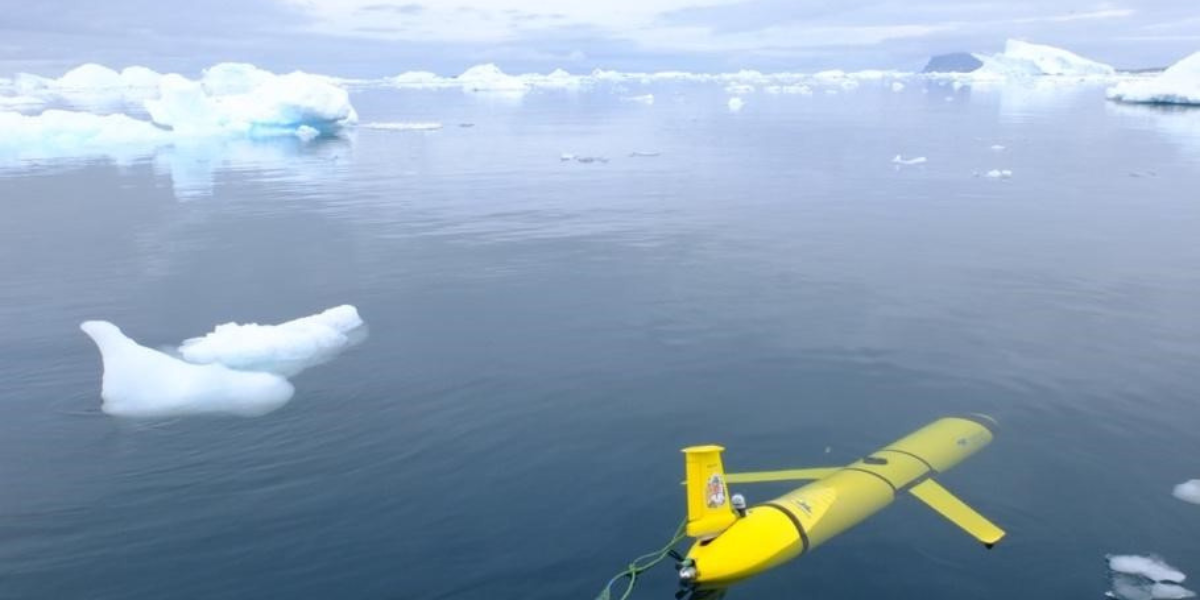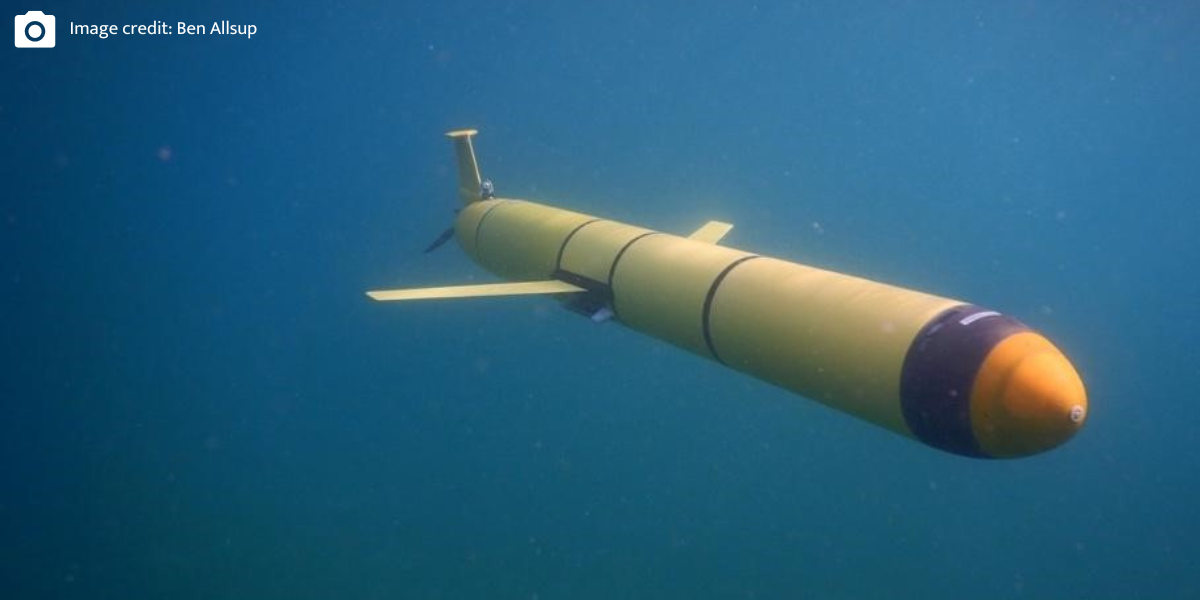
Assuring Long-term Autonomy through Detection and Diagnosis of Irregularities in Normal operation (ALADDIN)
Saving lives, improving ocean data collection, and supporting green energy - how we can all benefit from safe unmanned marine systems.
The ALADDIN project developed a smart anomaly detection and fault diagnosis for marine autonomous systems (MAS) by introducing and implementing new methods for the detection and identification of adverse behaviour for MAS.
Contact us
Assuring Autonomy International Programme
assuring-autonomy@york.ac.uk
+44 (0)1904 325345
Institute for Safe Autonomy, University of York, Deramore Lane, York YO10 5GH

Project report
The full project report describes the development and testing of methods for the detection and identification of adverse behaviour for MAS.
The challenge
At present, in the absence of current regulatory guidelines, MAS are piloted and monitored by experts, keeping operational costs high and limiting the scale of fleets that can be deployed simultaneously. This project increased the safety of MAS by helping the vehicles diagnose and identify the cause of their adverse behaviour.
The research
The project team started by defining healthy and anomalous behaviour of MAS with appropriate vocabulary and identifying data availability and sources for MAS deployments.
The team also introduced guidance for the definition of sensing requirements. They undertook work on the identification of sensing deviations for robotic and autonomous systems, with a focus on MAS. In particular, they have designed a novel method using a bidirectional generative adversarial network (Bi-GAN) with assistive hints to detect adverse behaviour of MAS.
The developed anomaly detection system requires only normal operational data and does not require additional labelling efforts. It can alert status that deviates from the system’s normal operational pattern, making it suitable for RAS operating in highly dynamic and uncertain environments such as oceans.
Supervised learning models were developed to detect faults within a specific MAS domain with datasets covering the potential failure modes. It was concluded that although such models can achieve high fault diagnostics performance when the test platforms operate very similarly to the training platforms, it has limited capability of generalising across different MAS domains. To address the issue, a novel fault diagnostics deep learning model - Marine Autonomous System Net (MASNet) – was developed to address the challenging fault diagnostics tasks for distinct types of MAS that are under-observed and remotely operated in different regions and tasks by different institutions.
The team undertook two field tests, funded by the European Commission, to test the project’s anomaly detection and fault diagnostics methods. Additionally, the developed tools were implemented in NOC’s command and control system for operational usage.
The results
You can read about all of the results from the project in the final project report. In summary, the project resulted in tools that detect adverse vehicle behaviour and diagnose the likely cause of the problem either through vehicle malfunction (e.g. loss of a control surface due to collision) or environmental disturbances (e.g. getting caught in strong surface currents). The project team did this by:
- introducing new methods for the detection and identification of adverse behaviour for MAS
- verifying these methods on the command-control infrastructure for over-the-horizon operations of MAS developed by the National Oceanography Centre (NOC)
- validated the developed anomaly detection and fault diagnostics models through additional field tests
- working with Lloyd’s Register to inform regulations for MAS

What is the role of interoception in the assurance of autonomous systems, especially those that have long, remote missions?
- Wu, P., Harris, C.A., Salavasidis, G., Lorenzo-Lopez, A., Kamarudzaman, I., Phillips, A.B., Thomas, G, and Anderlini, E. "Unsupervised anomaly detection for underwater gliders using generative adversarial networks" in Engineering Applications of Artificial Intelligence Volume 104, September (2021)
- Anderlini, E., Salavasidis, G., Harris, CA., Wu, P., Lorenzo, A., Phillips, AB., and Thomas, G. “A remote anomaly detection system for Slocum underwater gliders”, in Ocean Engineering, 236, 109531, 2021.
- Wu, P., Harris, CA., Salavasidis, G., Lorenzo, A., Kamarudzaman, I., Phillips, AB., Thomas, G., and Anderlini, E. “Unsupervised anomaly detection for underwater gliders using generative adversarial networks”, in Engineering Applications of Artificial Intelligence, 104, 104379, 2021.
- Wu, P., Harris, C., Salavasidis, G., Lorenzo-Lopez, A., Kamarudzaman, I., Phillips, A., Thomas, G., and Anderlini, E. "Unsupervised anomaly detection for underwater gliders using generative adversarial networks" in Engineering Applications of Artificial Intelligence, Volume 104, September 2021. Github repository linked in the paper.
- Anderlini, E., Harris, C.A., Salavasidis, G., Lorenzo, A., Phillips, A.B., and Thomas, G. "Autonomous detection of the loss of a wing for underwater gliders" in IEEE/OES Autonomous Underwater Vehicles Symposium (2020)
- Harris, C.A., Lorenzo-Lopez, A., Jones, O., Buck, J.J.H., Kokkinaki, A., Loch, S., Gardner, T., and Phillips, A.B. "Oceanids C2: An integrated command, control, and data infrastructure for the over-the-horizon operation of marine autonomous systems" in Frontiers in Marine Science (2020)
Project partners
- Dr Yuanchang Liu (principal investigator) University College London
- Dr Catherine Harris (co-investigator) National Oceanography Centre
Contact us
Assuring Autonomy International Programme
assuring-autonomy@york.ac.uk
+44 (0)1904 325345
Institute for Safe Autonomy, University of York, Deramore Lane, York YO10 5GH